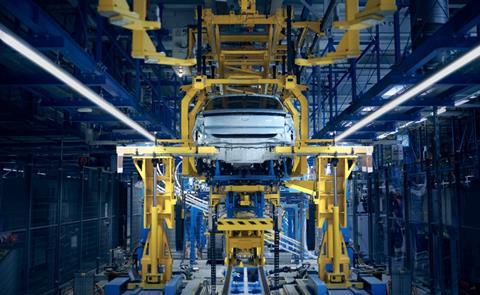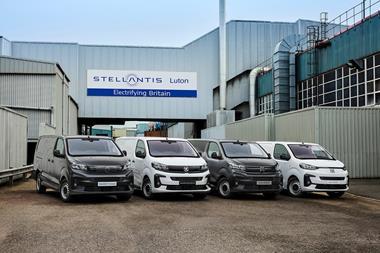Ford of Europe is cutting working hours at its carbon-neutral electric vehicle plant in Cologne because lower-than-expected demand.

Ford has been forced to impose a short-time working rule at its Cologne electric vehicle (EV) plant in Germany because of “significantly lower-than-expected demand for EVs”, especially in the German market. The reduction of the working week will affect 2,300 employees at the plant.
The Ford Cologne Electric Vehicle Centre has an annual production capacity of 250,000 vehicles and currently makes an electric versions of the Explorer SUV and Capri. The plant first opened in June 2023 and mass production began earlier this year, with the Capri added in September, but take up of the EVs has been slow.
The electric Explorer was Ford’s first passenger EV to be developed and built in Europe.
Ford said it was looking at market developments but the low demand required temporary adjustments to production. The carmaker said it has applied for short time working with the Federal Employment Agency because of “the rapidly deteriorating market conditions for EVs”.
According to the European Automobile Manufacturers’ Association (Acea), new car registrations in the EU remained stable for the first nine months of 2024, with almost 8m vehicles registered. Battery EVs accounted for 17.3% of the EU car market in September, up from 14.8% last year, but year-to-date volumes dropped by -5.8% with the total market share falling to 13.1% from 14% last year, driven by a substantial decrease in Germany (-28.6%). Between January and September this year almost 1,048,000 battery electric vehicles were registered, compared to almost 1,112,000 over the same period in 2023 (-5.8%). Plug-in hybrid car registrations for September also declined by a sizeable 22.3%.
The decline in registrations and scaled back EV production calls into question Ford’s global plans to reach a run rate of 2m EVs annually by the end of 2026 unless there is significant uptick in demand.
Ford spent $2 billion retooling its Cologne plant for EV production on the back of the success it saw for the Mustang Mach-E, E-Transit and F-150 Lightning. The 125-hectare site is equipped with a new production line, battery assembly and state-of-the-art tooling and automation. It is also Ford’s first carbon-neutral assembly plant, a step toward reaching carbon neutrality across all of its plants, logistics facilities and direct supplier locations by 2035.

























![Global[1]](https://d3n5uof8vony13.cloudfront.net/Pictures/web/a/d/s/global1_726550.svgz)














No comments yet